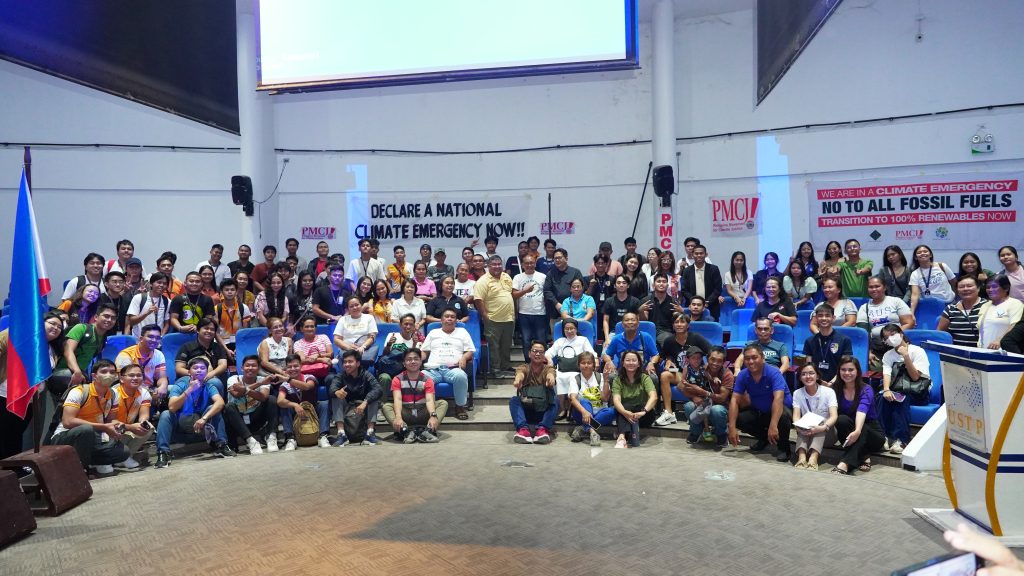Organizations call for Climate Emergency for just transition to Renewable Energy
By Lea May N. Caburatan, USTP System STRATCOMM
Share:
Cagayan de Oro City – The University of Science and Technology of Southern Philippines’ (USTP) Agropolis Science and Technology Park and Power Institute tandems with the Philippine Movement for Climate Justice (PMCJ) in the call for a just transition to renewable energy and declare climate emergency at the Performing Arts Theatre, Engineering Complex, USTP CDO on April 30, 2024.
The forum served as an avenue to present the current and pressing environmental conditions in Mindanao and how the increase in fossil fuel-generated energy in recent years has contributed to the country’s climate crisis.
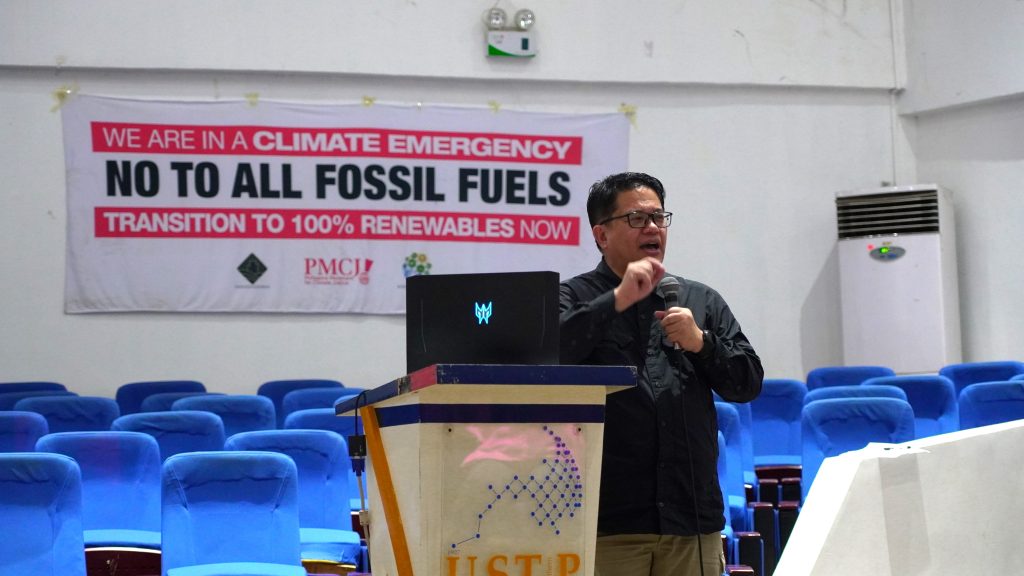
Mr. Ian Rivera, National Coordinator of Philippine Movement for Climate Justice
Mindanao in Coal
Six coal-powered plants have been established and are in operation in Mindanao, with four plants in Northern Mindanao. The island has 2,000 MW of power reserved, while the region can provide 800 MW but uses 452.08 MW only. This excess production has caused energy prices to be 200 times more expensive than the national average.
Climate Emergency
The Philippines is a signatory of the Paris Agreement and pledges to reduce greenhouse gas emissions. On the other hand, the number of coal-power plants has increased over the recent years, and several more are applying for expansion. There were also no signs of phasing out coal investments from the government and private sector.
The energy sector remains the leading source of greenhouse gas emissions. The rise of coal also signals increased CO2 emissions, contributing more to global temperatures. Scientific models projected that these increases in temperature also increase the occurrence of stronger typhoons, sea level rise, and even more erratic climate conditions affecting the most vulnerable populations like the Philippines.
Moreover, Ian Rivera, National Coordinator of PMCJ, also explained that the argument with solar energy is its reliability since it cannot be used for 24 hours. However, his team argues that other countries have already shifted to RE using improved technologies. He cited Germany, which shifted its source to RE, even when they have limited sunlight exposure and a change in seasons. “How much more in a country with sunlight all year round?” Rivera asks.
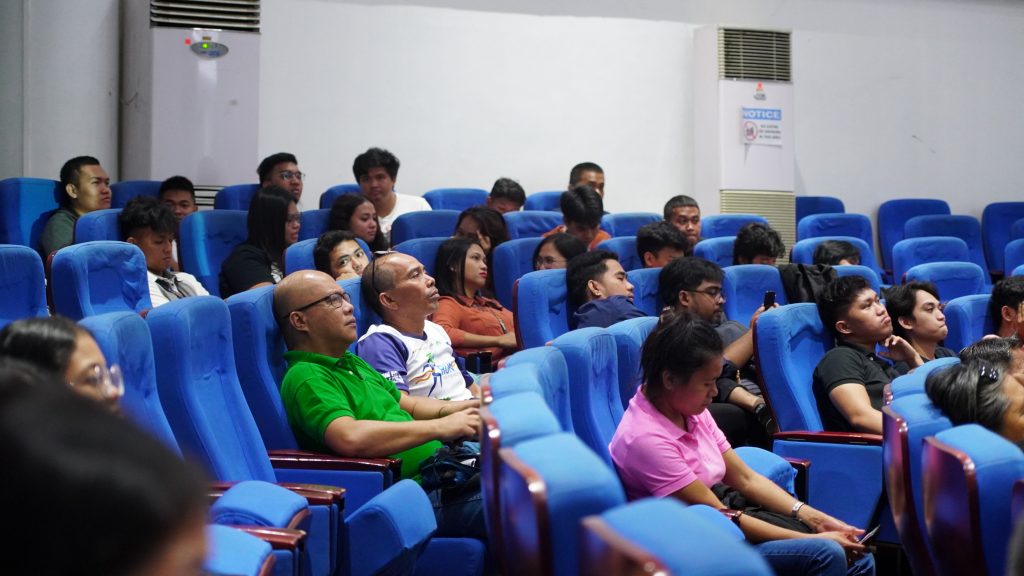
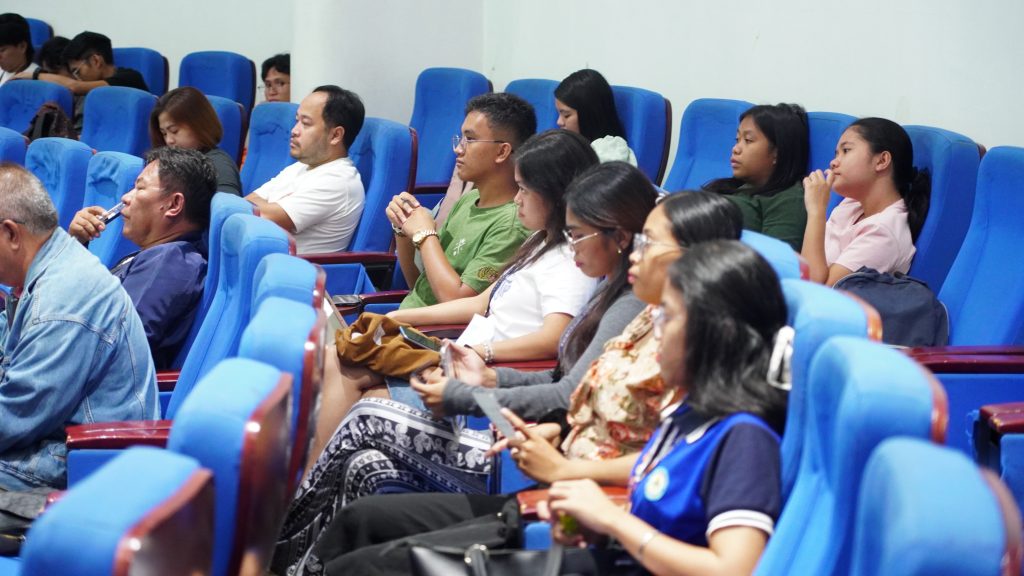
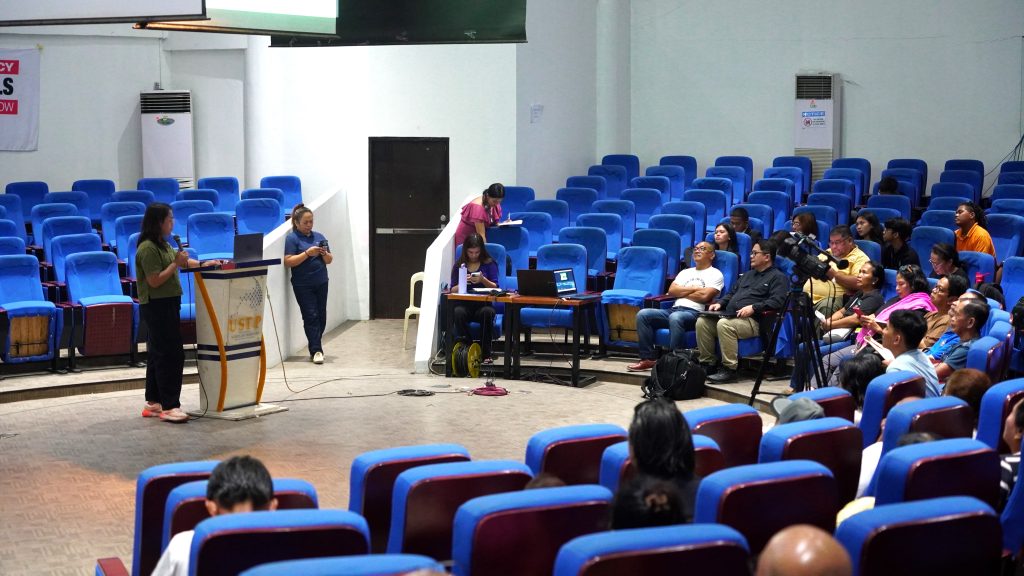
50-50 transition to renewable energy, not 50-50 Survival
The forum culminated with several local organizations committed to the movement for transition to RE. The transition to renewable energy calls for action from different stakeholders to enable environments, policies, and behavior changes for it to happen. With these, it also calls for massive ecological restoration, emanating from national and regional efforts to ensure that the people and the environment come first.
USTP Agropolis Science and Technology Park Manager Mr. Clint Django G. Pacana reminded students that the forum has presented the realities of the world, and these problems have existed even before. He emphasized and challenged the students that the facts and current situation discussed in the forum must be translated into studies or theses to bring science as a tool in solving relevant and real problems of the community. The different institutions in the University were grounded in the principles of action. He added, “The movement is not only for our time but for the future generation.”
